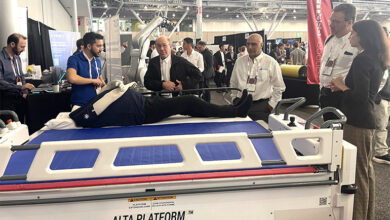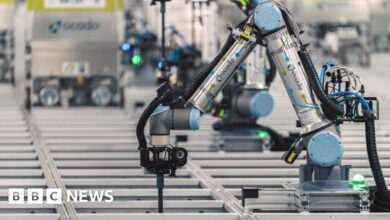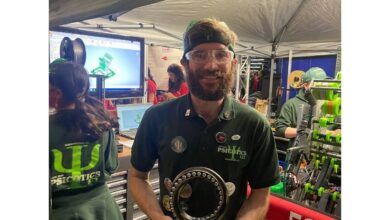Lumotive and Hokuyo release 3D lidar sensor with solid-state beam steering
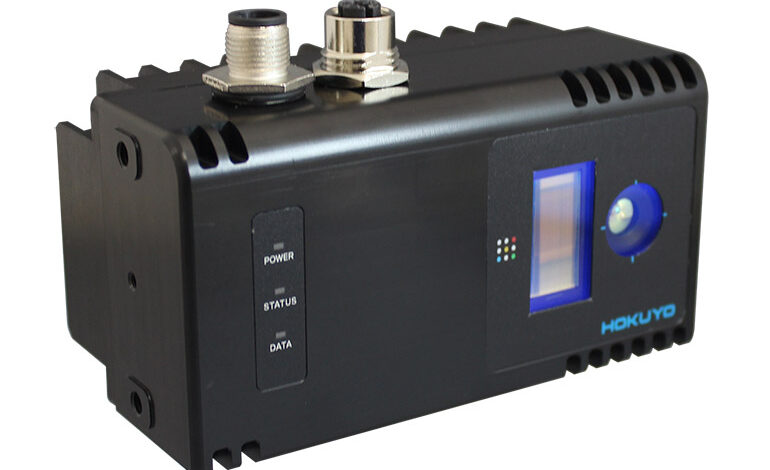
|
Listen to this article |
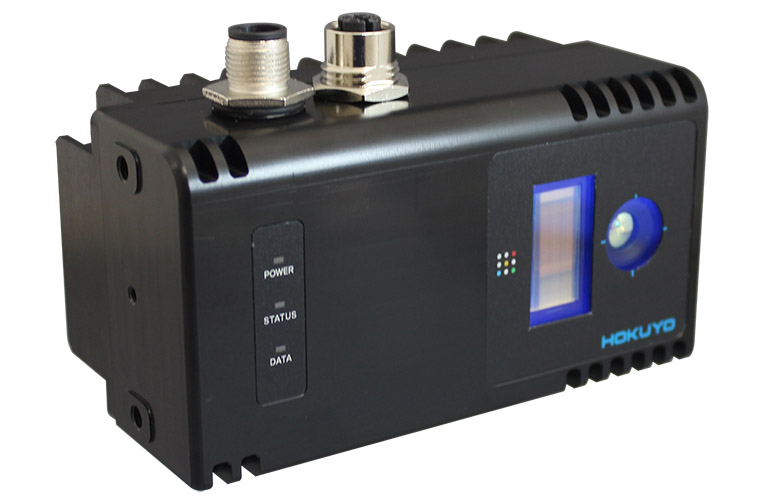
Hokuyo’s YLM-10LX 3D uses Lumotive’s patented LCM optical beamforming for robotics applications. Source: Lumotive
Perception technology continues to evolve for autonomous systems, becoming more robust and compact. Lumotive and Hokuyo Automatic Co. today announced the commercial release of the YLM-10LX 3D lidar sensor, which they claimed “represents a major leap forward in applying solid-state, programmable optics to transform 3D sensing.”
The product uses Lumotive’s Light Control Metasurface (LCM) optical beamforming technology and is designed for industrial automation and service robotics applications.
“We are thrilled to see our LM10 chip at the heart of Hokuyo’s new YLM-10LX sensor, the first of our customers’ products to begin deploying our revolutionary beam-steering technology into the market,” stated Dr. Axel Fuchs, vice president of business development at Lumotive.
“This product launch highlights the immense potential of our programmable optics in industrial robotics and beyond,” he added. “Together with Hokuyo, we look forward to continuing to redefine what’s possible in 3D sensing.”
Lumotive LCM offers stable lidar perception
Lumotive said its award-winning optical semiconductors enable advanced sensing in next-generation consumer, mobility, and industrial automation products such as mobile devices, autonomous vehicles, and robots. The Redmond, Wash.-based company said its patented LLCM chips “deliver an unparalleled combination of high performance, exceptional reliability, and low cost — all in a tiny, easily integrated solution.”
The LCM technology uses dynamic metasurfaces to manipulate and direct light “in previously unachievable ways,” said Lumotive. This eliminates the need for the bulky, expensive, and fragile mechanical moving parts found in traditional lidar systems, it asserted.
“As a true solid-state beam-steering component for lidar, LCM chips enable unparalleled stability and accuracy in 3D object recognition and distance measurement,” said the company. “[The technology] effectively handles multi-path interference, which is crucial for industrial environments where consistent performance and safety are paramount.”
Lumotive said the LM10 LCM allows sensor makers such as Hokuyo to rapidly integrate compact, adaptive programmable optics into their products. It manufactures the LM10 like its other products, following well-established and scalable silicon fabrication techniques. The company said this cuts costs through economies of scale, making solid-state lidar economically feasible for widespread adoption in a broad spectrum of industries.
 Submit your presentation idea now.
Submit your presentation idea now.
Software-defined sensing provides flexibility, says Hokuyo
Hokuyo claimed that the new sensor “is the first of its kind in the lidar industry, achieving superior range and field of view (FOV) compared to any other solid-state solution on the market by integrating beam-steering with Lumotive’s LM10 chip.”
In addition, the software-defined scanning capabilities of LCM beam steering allow users to adjust performance parameters such as the sensor’s resolution, detection range, and frame rate, said the Osaka, Japan-based company. They can program and use multiple FOVs simultaneously, adapting to application needs and changing conditions, indoors and outdoors.
Hokuyo said the commercial release of the YLM-10LX sensor marks another milestone in its continued investment in its long-term, strategic collaboration with Lumotive.
“With the industrial sectors increasingly demanding high-performance, reliable lidar systems that also have the flexibility to address multiple applications, our continued partnership with Lumotive allows us to harness the incredible potential of LCM beam steering and to deliver innovative solutions that meet the evolving needs of our customers,” said Chiai Tabata, product and marketing lead at Hokuyo.
Founded in 1946, Hokuyo Automatic offers a range of industrial sensor products for the factory automation, logistics automation, and process automation industries. The company‘s products include collision-avoidance sensors, safety laser scanner and obstacle-detection sensors, optical data transmission devices, laser rangefinders (lidar), and hot-metal detectors. It also provides product distribution and support services.
